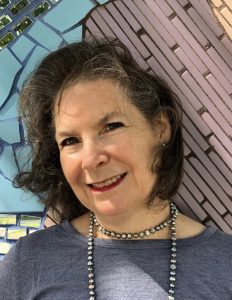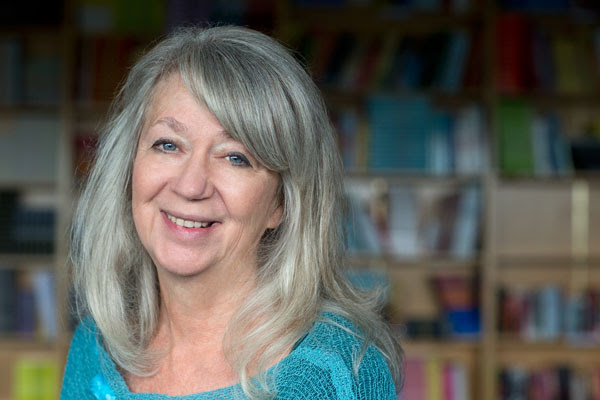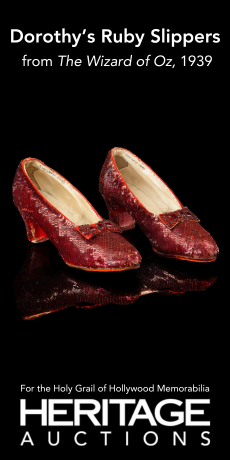By Judy Carmack Bross
“We had to learn how to close down our organization with great respect and do honor to our program.” Elise Mackevich Salchli, former Executive Operations Director, for Literature for All of Us.
Knowing when it is time for the non-profit that you have birthed and nurtured to grow in a new home is one of the wisest lessons in philanthropic service. As with Literature for All of Us (LFAOU), sometimes the next chapter can be read with much enthusiasm.
Fueled for 25 years by the mission of opening worlds by opening books, LFAOU is now moving into a new life as part of the Chicago Public Library programs for teens. Circles of Chicago Public School teens, now in the thousands of participants, who once thrived on book groups where they talked about the books they read and shared their own stories while developing their imaginations will be re-created in libraries across the city. More than 58 teen librarians have signed up for training for the ambitious program using the curriculum developed by Literature for All of Us.
Elise Mackevich Salchli
“Literature for All of Us has empowered people, written and accumulated a substantial archive of curricula and training materials and impacted thousands of lives with trauma-informed book groups. And now we have the amazing good fortune of having the great works, approximately 1000 weeks of curricula and training models of Literature for All of Us carry on with the Chicago Public Library into the future,” Elise Mackevich Salchli said.
Faith Rice
We talked with founder and former Executive Director, Karen Thomson, Elise Mackevich Salchli, former Executive Operations Director, and Faith Rice, a college and career specialist at the Harold Washington Public Library about the book groups that are all about building resilience and self-discovery. Rice, a former LFAOU leader who brought the program to the Chicago Public Library talked about its importance.
“With more and more teens coming back into our library spaces after COVID and with the heightened violence everywhere, there is a real need for restorative justice practices. Data shows that one out of three children under the age of 16 have experienced some type of trauma hindering their ability to be the best version of themselves. You need to look no further than the card section at your local Walgreen’s to see that all the sympathy cards are sold out to know that it is a time of great sadness for so many,” Rice said. “When reading books, you can see yourself reflected and imagine a world that is different, better even. Participants may share things like ‘my mom doesn’t have a job and I worry about how we will get food’. Teenagers are still children entering into adulthood and are asking ‘who am I’–a most important topic to be explored in safe spaces where kids want to hang out. At our libraries we offer these safe spaces.
Rice points out: “We are not just offering book group kits, but the teen librarians are being trained by former book group leaders who spent years in the organization helping to push forth Karen’s founding vision.”
Once housed the highly recognized social service organization Family Focus with programs offered at several of its locations, there were at once point seven group leaders offering over 35 book groups across the city and Evanston. “This is no small feat, especially in a society where literacy is revered but not practiced as much as in the traditional form of a physical book and social interaction,” Rice said
Karen Thomson
Thomson told us how the idea for Literature for All of Us came into being:
“In 1996 I volunteered to facilitate a book group for an English class as part of a GED program at the Department of Human Services – Teen Parents Division – in south loop Chicago. The first Friday I brought copies of five poems by Maya Angelou and 15 years of experience as a book group leader specializing in women’s writing. Fifteen young mothers faced me in a circle that first meeting, all of us nervous and wondering what could happen. Mine was the only white face in the group. I explained to the group that I had been sharing books with women and talking about our lives as women for years and that it was suggested that a book group like that might be something you would like. My book groups had become places where women felt safe to voice their opinions and test our ideas. Maybe the same thing could happen here, in this welfare department on Friday mornings. I would bring the books and we would try it for ten weeks, although if today was not what they wanted, that was fine, and they could quit.
That first day, before the Angelou poems, I had everyone go around the circle and introduce themselves as a fruit. Answers ranged from peach to orange to banana and when asked about their choices, the moms talked about soft interiors and hard exteriors. It made sense, given the challenges each of them were facing at this point in their lives. The ice was definitely broken. And now we were ready to read – and to write. And the magic formula was born: read and discuss something relevant, write from your soul, and no judgment allowed in the room. It was intuitive and it was successful.”
As the program built more and more teens wanted to get involved and Thompson began to see the resiliency of what she had created.
“One woman from the first DHS book group wrote an eight-page letter to me three years after she graduated and had moved to Alabama about how important the book group had been to her. She had felt a failure and shame for getting pregnant before finishing school. She wrote that in the book group she felt affirmed as a person, not judged. Not being judged came up most often when participants were asked to talk about what was helpful in the group.”
Writing became an integral part of the book groups, Thomson said.
“Literature is empowering. Creating your own, as in writing, is equally powerful. Combining them in one interrelated session was magical. The weekly Friday morning book group became a pattern of an icebreaker opening, reading aloud round-robin style, discussing sections as we read, and leaving time to write in response to simple prompts. At the close of the first 10 weeks, the young women had read both The House on Mango Street by Sandra Cisneros and Their Eyes Were Watching God by Zora Neale Hurston. They had written almost 100 poems, collectively, and I could not stop my volunteer work. Other teachers in the GED program were asking for the book program for their own students. I thought I would be happy to spend my weekdays at the welfare department, leading book group meetings. But, I was told, there were 5,000 young moms in GED programs in Chicago in similar situations – and how could I ignore these others, when the response was so positive? I had to face my limitations and the need to make a decision on whether this program could be replicated to scale. Would other volunteers also be committed and interested to make it happen? I thought so.
“Once I had been with a group of young people for several sessions, I knew that the approach I had intuitively taken was successful. I had always believed that if you gave people books that would speak to them they would naturally become lovers of books. Since books had given me new visions of my place in society as a woman, a door into history that mattered to me, reflections of women who shared my fears and hopes and dreams, and a way to both escape my daytime reality and dream into a better, stronger daytime version of myself, it was my own formula for young moms, in particular, and people, in general – read something relevant, write from your soul, and share your truth when you could. And no judgment allowed throughout these activities – from others or self. One quote I shared was: ‘In every woman there is a Queen. Speak to the Queen and the Queen will answer’.”
A poem by former book group participant, current author, poet, and independent music artist Jervsalem Singleton speaks to the LFAOU accomplishments:
Healed by Words
by Jervsalem Singleton
I’ve been healed by words
Words written across space and time by strangers
Who have become closer to me than a mother
I’ve been reached by their words when I thought I was destined to suffer.
Carrying the weight of the world on my shoulders alone
Hidden in the darkness until they rolled away the stone
Who’d a thought that peace could come in the form of a tablecloth and candle?
That authors would share stories that left me strong enough to handle?
I was strengthened by Sister Soulja
Challenged by J. California Cooper
Enamored by Edwidge Danticat
While Maya Angelou made me look in the mirror
I laughed and cried with Shaneska Jackson
And now these women are a part of me.
As I stand here, I’m better for it
They revealed my possibility.
See, I never knew I belonged on these stages
And no one couldn’t ‘ve ever told me I’d find salvation between pages
That even though I was failing in school
My comprehension was above average
And so was I!
And when everyone was against me, show me how to hold my head high.
These words
These words were bled into me through blunt force trauma
Angry women, tired
Free, women, inspired
To dream
That young girls would be huddled around tables and candles
And older women who served as examples
I was healed by these words
So now I give you my own sample.
And now the Chicago Public Library has kits for their teen librarians, including books, training manuals, curricula, snacks, tablecloths, and candles, so that mindful reading practices and opportunities for self-expression will once again abound in safe spaces.
We are reminded to celebrate when torches are passed and given the opportunity to burn brightly for years to come.
To find out more about Chicago Public Library programs visit: Chipublib.org














